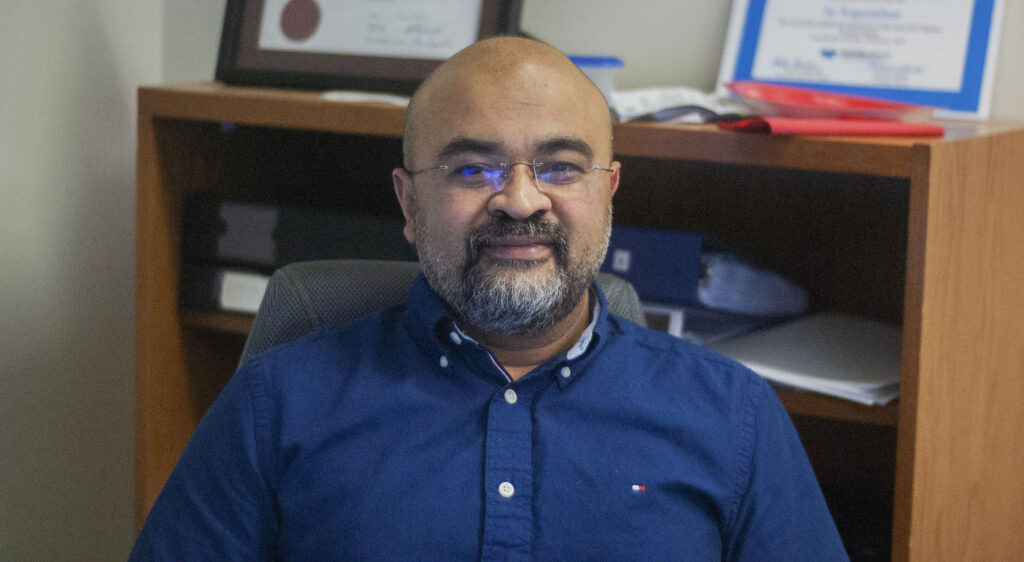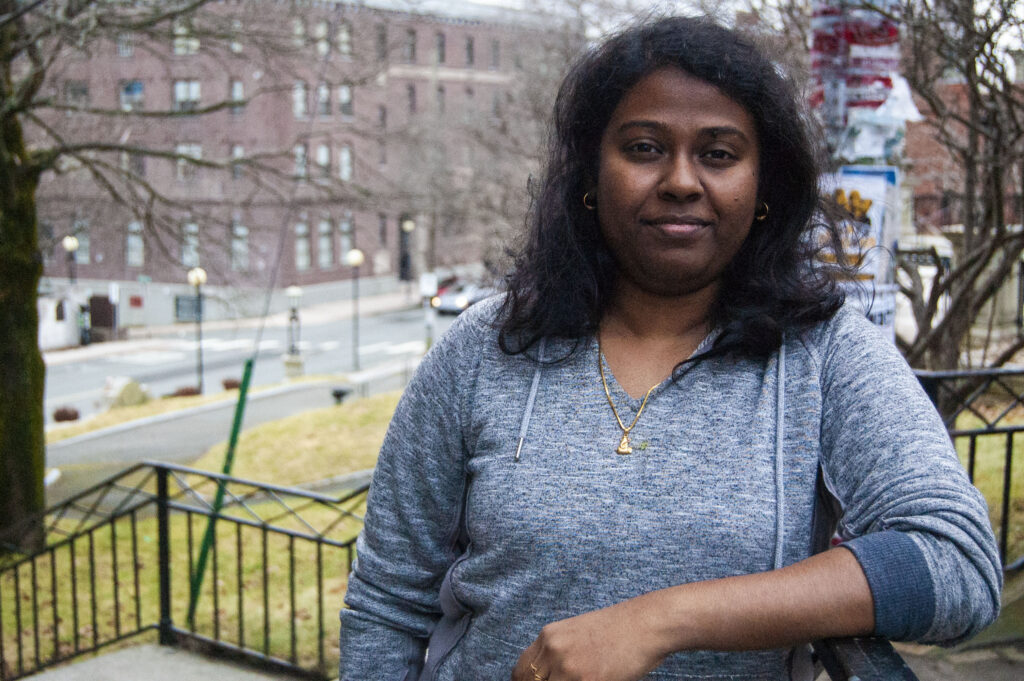Newfoundland has a storied history with Tamil immigrants, but many choose not to stay in the province.
Chad Feehan
Kicker

January is Tamil Heritage Month in Canada, a time dedicated to celebrating and reflecting on the country’s Tamil community and history.
Newfoundland’s best-known association with this South Asian diaspora is the 1986 rescue of 150 Tamil immigrants found drifting in St. Mary’s Bay. They, like thousands of other Tamils, were fleeing civil war in Sri Lanka.
Since the 1980s, the Tamil population in Newfoundland has increased dramatically. In recent years, however, many Tamils have found themselves moving further west after finishing their education in the province.
Jai Ganesh, an instructor at the School of Ocean Technology at the Marine Institute, was born and raised in Tamil Nadu, India. He has spent most of his life here in Newfoundland.
Ganesh watched the community grow over the decades but laments the lack of an integrated Tamil culture in the province that, for some, is reason enough to seek new roots in bigger cities such as Toronto.
“You can bring people and they don’t stay. How do you make them stay? It’s not just the job sometimes.”
Like any culture, food is an essential part of Tamil culture, but Ganesh doesn’t even know where to begin took look for some Tamil staples like okra. Goat meat, another Tamil staple, is a Newfoundland rarity.
“Compared to Toronto, the growth of Tamil populations hasn’t been as significant because we don’t have a conducive ecosystem to make people stay,” said Ganesh.
He applauded the internationalization efforts of post-secondary institutions in the province like the acknowledgement and celebration of a variety of festivals, but he said the government could do more to accommodate its immigrant population.
“Bring the farmers in Newfoundland and these ethnic people together and ask what it is you need,” Ganesh said. “It’s not just about immigrating the people. What are their needs? What are their cultures? What kind of food do they make?”
“Most students finish their studies and move to Toronto to get a better job.”
– Divyah Ramesh
Divya Ramesh, a student at Marine Institute and barista at Madras Café — a Tamil-owned business —observes the Tamil flight out of Newfoundland from a different perspective.
Which is, to put it simply, a matter of money.
“The people in the Atlantic, they are not getting enough pay and are getting a better life in Toronto. That’s why everyone is moving. Most students finish their studies and move to Toronto to get a better job,” said Ramesh.
In Ramesh’s opinion, higher wages would be enough to keep Tamils on the island.

Whatever region of North America the Tamils choose to rest in, Ganesh is proud of the resilience and fortitude of his fellow Tamils, who in many parts of Asia are still treated as second-class citizens.
“Those people who came from Sri Lanka eventually claimed refugee status and then moved to Toronto . . . are running successful businesses and giving employment to so many people, which is marvelous to me,” said Ganesh.
Ganesh remembers conversations with former refugees who are now moguls of business, in which they attributed their lack of fear as the motivator of their success. After a treacherous journey across the world, there was nowhere to go but up.
“A lot of them said they didn’t even know if they’d be alive along the journey, and they’ve made it.”
Ramesh enjoys her life in Newfoundland and appreciates the markedly more forgiving standard of life compared to her hometown of Chennai in Tamil Nadu, India, where in some cases Tamils are forced to pay more money for education than other groups within the Indian society.
Despite her appreciation for the respite offered by this province, Ramesh notices some of her peers are losing touch with the culture of their homeland, complementing Ganesh’s concern for the lack of Tamil ecosystem for Tamilian expats to connect with.
“I don’t know why they are changing. I feel that is not good. You should not give up your culture,” said Ramesh.
“People are behaving so differently. I would proudly say our culture and traditions are much good. I would say people should not change who they are.”
Chad Feehan is a student journalist at College of the North Atlantic in St John’s, Newfoundland, Canada.




Be the first to comment